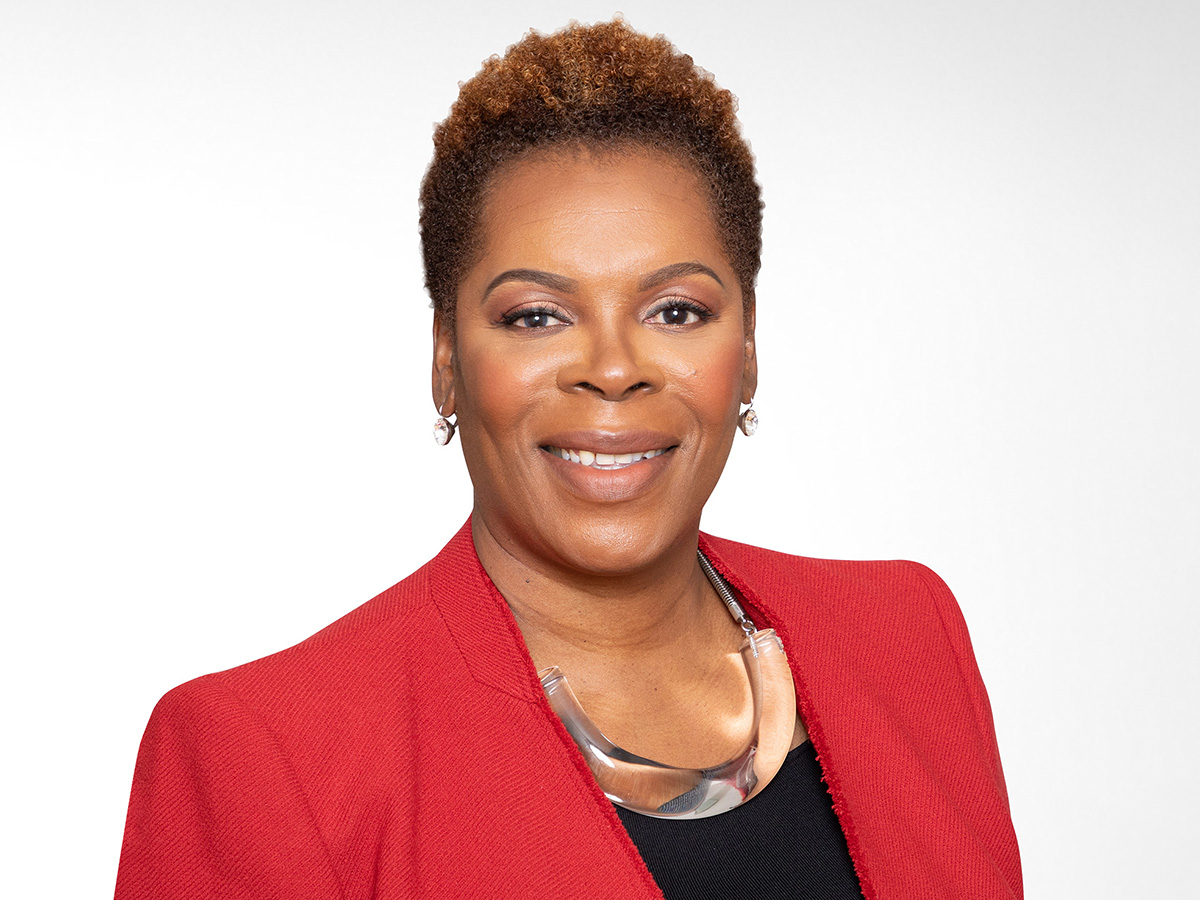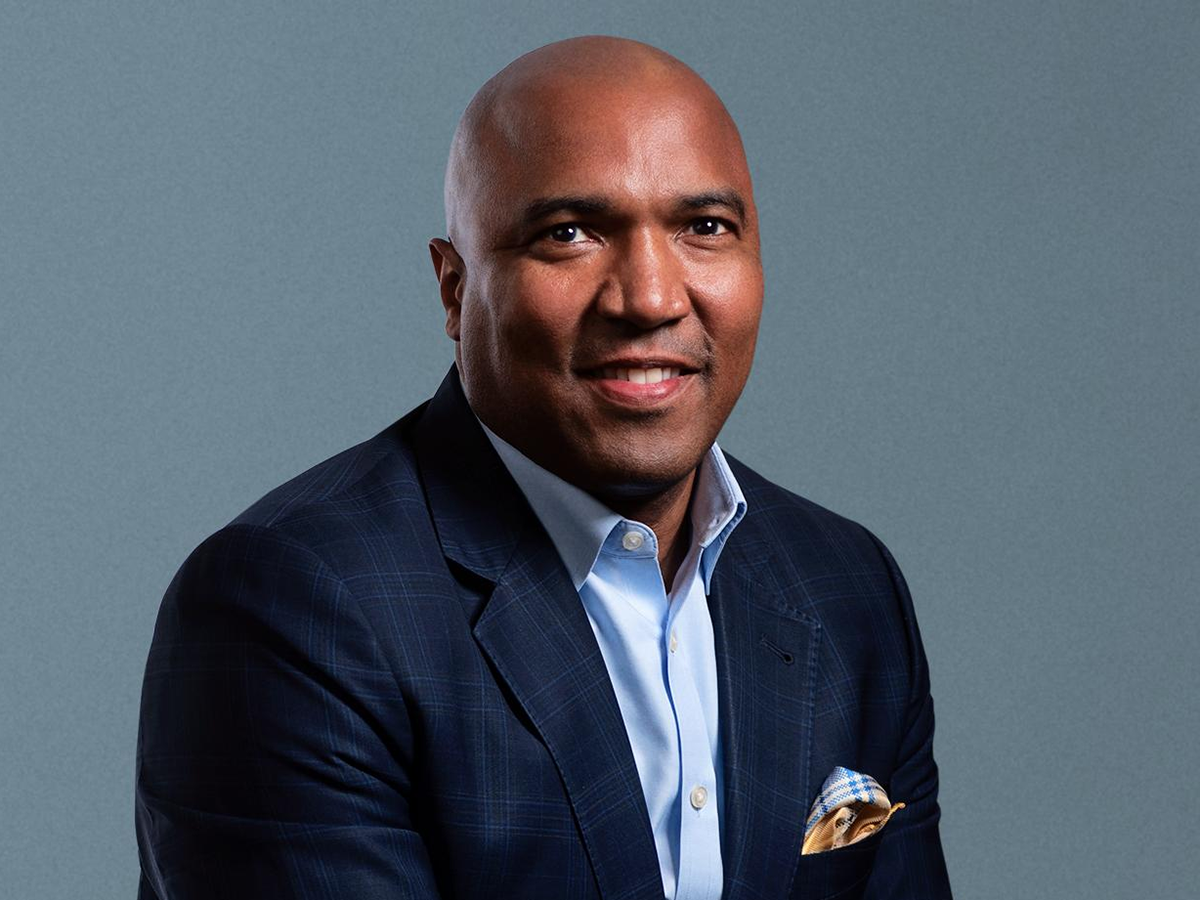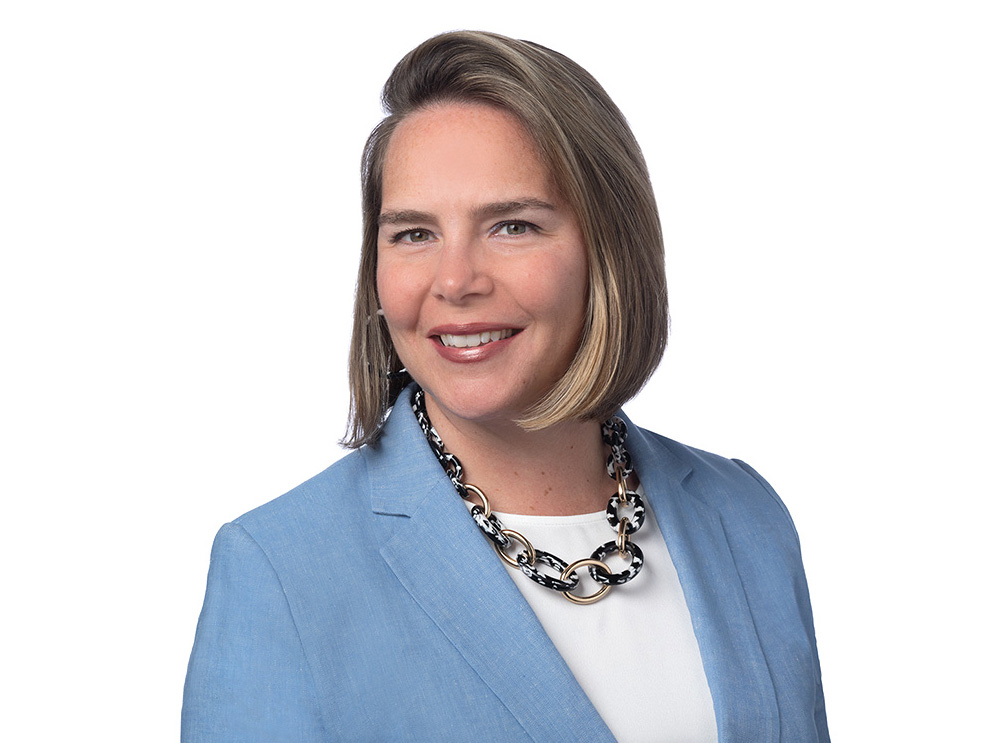CRE Diversity Roundtable: Today’s Talent, Tomorrow’s Leadership
Executives at CBRE, Cushman & Wakefield and JLL discuss strategies for making their workforces and the industry more reflective of society.
Discussions about DEI in commercial real estate are often focused on representation in the C-suite. However, the best indicator of where the industry is headed isn’t in the corner offices of CRE firms. It’s in the intermediate and lower ranks. To find out what firms can be doing to foster tomorrow’s leaders and ensure an increasingly inclusive CRE, Commercial Property Executive gathered executives from the industry’s largest service firms.
Here’s what Nadine Augusta, chief diversity, equity and inclusion officer at Cushman & Wakefield; Jane Curran, head of talent acquisition at JLL; and Tim Dismond, chief responsibility officer at CBRE, had to say.
How are your companies being more inclusive in your hiring and ensuring that tomorrow’s leaders will be more diverse?
Augusta: A key focus in our diversity, equity and inclusion strategy is developing, nurturing and empowering our people. Cushman & Wakefield is committed to increasing representation of women and historically underrepresented groups by ensuring a diverse slate of candidates for recruiting, in addition to providing mentoring, sponsorship and support programs to employees.
READ ALSO: Working Together Toward Pay Equity in CRE
Our nine employee resource groups offer opportunities for members to develop professionally, grow their networks and foster inclusion and belonging. The firm has made progress advancing gender parity. Cushman & Wakefield is currently an industry leader on this front. Women make up 40 percent of our global population. In the U.S., 45 percent of our employees are racially and ethnically diverse.
We also maintain key external partnerships with organizations that are dedicated to providing opportunities and increasing diverse representation within the commercial real estate industry, including the CREW Network, Project REAP and African American Real Estate Professionals.
Curran: We’re working to increase real estate awareness for a more representative diverse talent pipeline in our company and the industry more broadly. We use a diverse mix of channels and touch points, including partnering with organizations that create pathways to real estate careers for underrepresented groups.
We also have programs in place to help reduce the financial barrier to entry for transaction roles, such as brokerage positions, so they are more accessible to talented individuals who may hesitate to apply because of the industry’s commission-based compensation model. To foster the next generation of leaders, we invest every year in career development programs so our people can build the professional, business, technical and leadership skills needed to serve clients today and in the future.
READ ALSO: Extending CRE’s Talent Pipeline
Dismond: One way CBRE is building a more diverse pipeline is through our Community Impact Initiative. We partner directly with nonprofit organizations that help prepare individuals underrepresented in the commercial real estate industry for future careers, including Thurgood Marshall College Fund, Project Destined, Girls Inc. and Ascend, among others.
Our engagement includes support for workshops and scholarships as well as direct connections with our employees. Once employees are here, we have several programs focused on the development of emerging leaders to improve self-leadership and strategic leadership skills, as well as build competence in communicating and influencing others and the business of CBRE.
Has there been too much of a focus on diversity in senior leadership positions at the expense of representation down the ladder?

Nadine Augusta, Chief Diversity, Equity & Inclusion Officer, Cushman & Wakefield. Image courtesy of Cushman & Wakefield
Augusta: There’s still a need to focus on DEI. I am focused on creating long-term sustainable change through a DEI strategy that addresses the systems, policies and key decision points that influence our company’s culture.
We know there are DEI challenges within the industry, and we are committed to creating equitable opportunities for corporate and fee-earning professionals and diverse suppliers. Our commitment to DEI spans across all levels of the organization, not just senior leadership roles.
Curran: We strive for diversity at all levels and all areas of our firm, from the top of our organization to the frontlines with clients. We believe in having diverse representation in our most senior levels, but we also know that building the pipeline for the future requires significant investments today in early career talent.
READ ALSO: How CREW Is Elevating DEI
For example, we have several robust programs that empower diverse college students to explore the endless career opportunities available at JLL, such as our partnership with Project Destined, a nine-week internship experience that’s resulted in 16 hires so far. Just recently, we also expanded our Emerging Talent Conference globally, attracting more than 1,300 attendees across 11 countries to learn about careers in real estate, JLL’s various business lines, and the many ways we’re shaping a brighter way for our clients, communities and planet.
Dismond: We balance both. It’s important to have representation in senior leadership that reflects our communities, and we can do that at the same time as we hire for diverse backgrounds and experiences at all levels. We believe a diverse and inclusive culture enables the exchange of perspectives that lead to outstanding client outcomes.
Mentorships in CRE are gaining popularity as an effective way to achieve greater diversity and inclusion. What makes an effective and impactful mentorship program?
Augusta: Mentorship continues to be a great way to develop, nurture and empower employees as they pursue their career aspirations. We know that mentorship helps with employee engagement and retention. In fact, MentorCliQ found that those who are involved in mentoring programs have a 50 percent higher retention rate than those not involved in mentoring.
An effective and impactful mentorship program is one that has structure, clearly defined goals and rigor in program execution including mentor and mentee matches, learning and development as well as tools and resources to support for a productive mentor relationship. The program should also have clear accountability for measurable results.
READ ALSO: How Mentoring Can Make CRE More Diverse
We have mentorship programs across the organization, including some that are led by our ERGs. In 2022, our network of ERGs was comprised of thousands of employees in over 30 countries across the globe, and we increased membership by 18 percent over the previous year. In addition to the mentorship programs, our nine ERGs curate career development and networking opportunities for its members.
Curran: We offer several hands-on training programs for new brokerage hires, which typically include a long-term mentorship with experienced peers who can help employees who are new to JLL thrive in their careers. Through JLL University, or JLLU, a 12-week program designed for early-career brokers who are either new to JLL or to a brokerage position, participants experience 55-plus hours of training, development, close mentorship and exposure to the company’s senior leadership during fireside chats and networking opportunities within their first three months.
Dismond: Mentorship programs remain a key part of CBRE’s talent retention and development practices. In a global multi-faceted company, we have an opportunity to match junior talent with leaders across business segments and geographies. This contributes to enhanced networking, career development and mobility within the company. We also offer a framework for regular meetings to lay the groundwork for a successful mentoring relationship.
How has the approach to DEI in CRE changed in the past several years?
Augusta: The industry has seen an increased focus on DEI, including the hiring of diversity officers who report to the CEO and/or are fully embedded within the C-suite and implementing DEI strategy and initiatives.
We believe that the increased emphasis on driving greater progress in DEI is necessary to attract and retain the best talent, foster a nurturing and supportive culture and deliver the best results for our clients and shareholders. As an industry, we are also seeing increased demand from our clients for support in achieving their DEI goals from a workforce and supplier diversity perspective. The industry is still early in its journey, but the progress is evident.
Curran: We’ve had a longstanding focus to recruit and hire diverse talent, so our commitment remains, but over time we’ve evolved to find more meaningful ways to connect with candidates and nurture relationships.
We recognize how competitive the hiring landscape is today and that in order to resonate with talent, we have to help them see that JLL is an employer of choice because we give them the opportunity, knowledge and tools to own their success and we value what makes them unique.
Dismond: DEI is a priority that starts at the top, with our CEO, and I report directly to him. At a time when we’re facing a macro environment where some companies are experiencing resource constraints, CBRE’s investment in our DEI programs remains strong, enabling us to continue to drive progress. For us, DEI is a movement, not a moment.
Are employees more enthusiastic about participating in these programs than they had been and is interest increasing?
Augusta: We know that our commitment to DEI and the progress we deliver against this commitment are expected from our employees. Employees have provided us with feedback in our engagement survey that acknowledges our DEI progress and they have given us constructive feedback on the work that is still to be done. Initiatives like our mentorship programs play a critical role in fostering a culture of inclusion and belonging and have certainly helped drive greater employee engagement and retention.
Curran: We continue to see increased enthusiasm and participation year over year across our business resource groups, or BRGs, which play a critical role in furthering JLL’s DEI strategy within the business lines and actioning the company’s commitments through communication and awareness campaigns, events and professional development opportunities.
We have more than 30 BRGs and DEI workgroups around the world supporting Black, Latino, Asian, inter-generational, parents, caregivers, neurodiversity, abilities and more, as well as multiple chapters globally of the Women’s Business Network and Building Pride groups.
Membership continues to grow, and attendance at BRG-sponsored events is increasing, too. Most recently, our Asian Business Professionals Network saw a notable increase in membership after hosting employee events throughout Pan-Asian Heritage Month. Thousands of our employees have found value in being part of a BRG and have experienced the meaningful connection and true sense of belonging they offer everyone.
Dismond: Yes. For example, we are seeing increased interest in mentorship programs and are currently evaluating which programs in the Americas can be expanded on a global scale. One of our talent development programs established 478 mentor-mentee pairings in 2022, with an average of 10 hours invested in each relationship.
How has the increased focus on and awareness of DEI initiatives over the past several years helped develop these programs? Conversely, has recent pushback and criticism of the broader DEI space had an impact on these programs?
Augusta: In my experience, the support for DEI has had its peaks and valleys over the years. We are monitoring the increasing polarization around DEI while, at the same time, maintaining our commitment to driving change. Our goal is to attract and retain the best talent at all levels of our organization, and we know that is possible if we have a diverse mix of talent at all levels of the organization.
Curran: Our global DEI strategy includes a focus on our talent, both current and future, which has strengthened support for diversity initiatives across the talent acquisition space. We also now have the power of a global DEI team, reporting directly to our CEO, to bolster our efforts and support us in pursuing new partnerships and programs.
Our teams thrive when they collaborate and bring together diverse mindsets and expertise to shape more sustainable outcomes for our clients and colleagues. Our leaders and clients see the business value in solutioning as one firm and investing in diverse perspectives, because tough problems require smart teams and fresh ideas.
What are your near- and long-term DEI goals at your firm?
Augusta: One of my immediate goals when I joined Cushman & Wakefield was to drive global commitment to DEI as a firmwide priority. I’m proud that we have been able to do just that by implementing the firm’s first global DEI strategy that is guiding our efforts, and we hired a supporting team of professionals to address DEI challenges and opportunities specific to Cushman & Wakefield.
Our global DEI strategy takes a holistic approach and focuses on making an impact for our workforce, workplace and the marketplace. Long-term, my goal is to create sustainable change at the company through a global DEI strategy that addresses the systems, policies and key decision points that influence our company’s culture. We have a strong foundation so far that puts inclusion and belonging front and center for our colleagues, embedding DEI into our culture, serving our clients and equipping our people to serve as champions and visible DEI leaders.
Curran: We’ve increased our partnerships and recruitment outreach efforts for better representation of women and underrepresented ethnicities in our candidate pools. We’re also focused on achieving greater gender balance in our management ranks by providing leadership development opportunities for high-potential women.
Across JLL, we aim for 40 percent female representation at our most senior levels by 2025. As of December 2022, we achieved 37 percent and we’re trending to meet our aspirations.
Dismond: Our strategic priorities are to strengthen our inclusive culture, increase the diversity of our workforce and invest in the marketplace, including spending $3 billion with diverse suppliers in 2025.
These priorities guide our global and regional initiatives, and while the initiatives may shift based on progress, the outcomes we’re looking to achieve remain the same in the short and long term.









You must be logged in to post a comment.